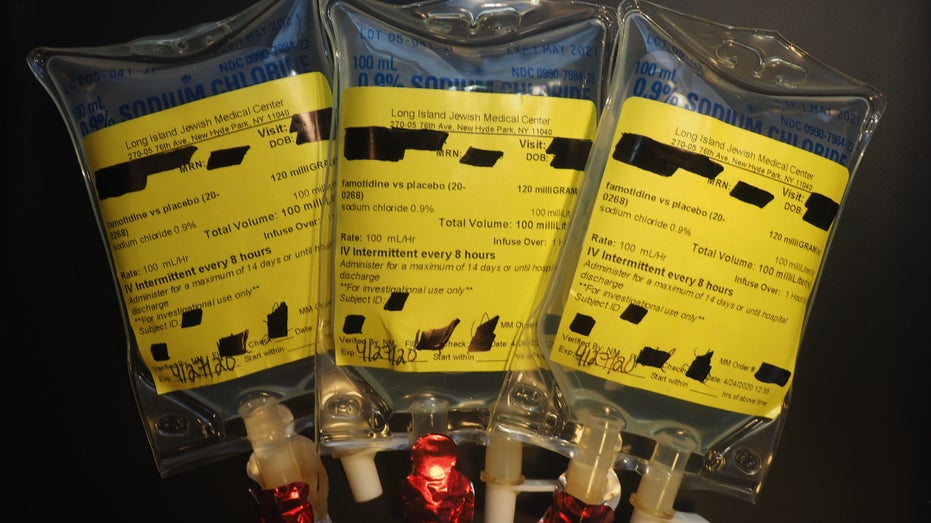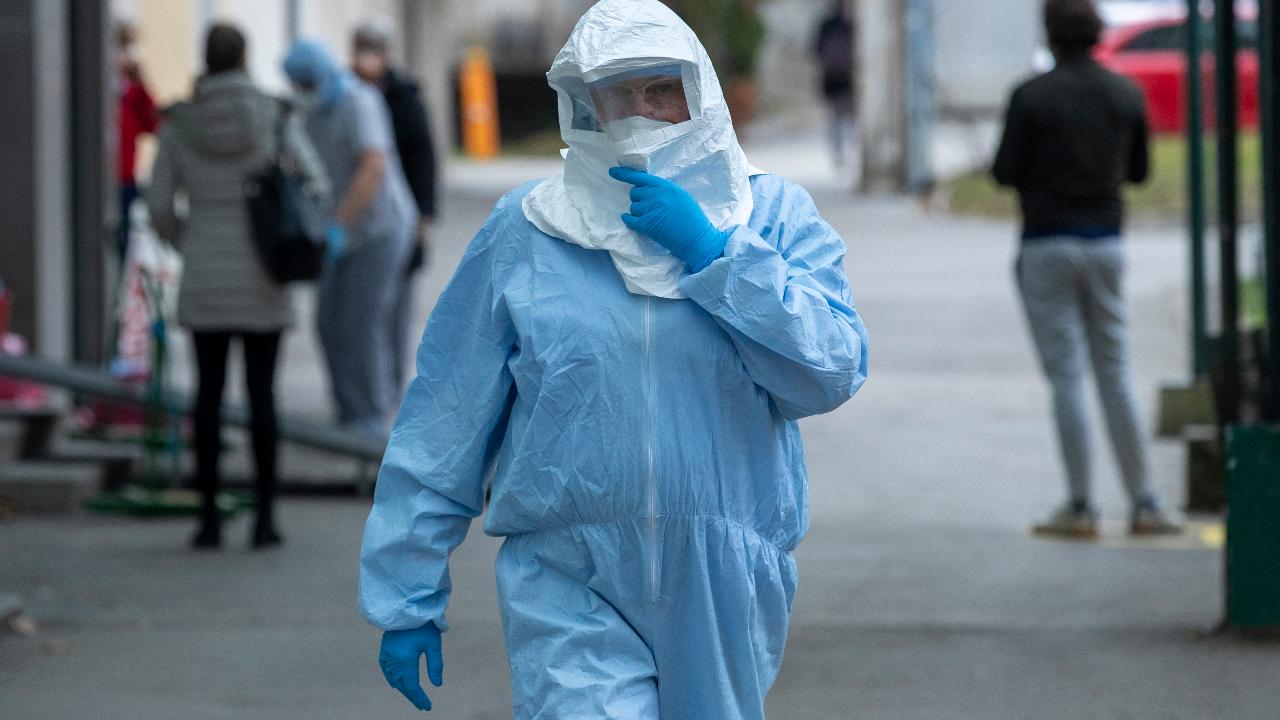What is famotidine?
People at home should not self-medicate with famotidine for coronavirus
Get all the latest news on coronavirus and more delivered daily to your inbox. Sign up here.
A drug that many Americans are used to taking to ease heartburn is being investigated as a potential coronavirus treatment, and a study of coronavirus patients encouraged researchers to keep looking into it.
Researchers at a New York hospital system are looking into famotidine, which is better known as Pepcid, after infectious disease expert Dr. Michael Callahan visited Wuhan, China, and noticed that patients who were already on the drug appeared to have a better chance of surviving coronavirus.
WHAT ARE ALL THE CORONAVIRUS TESTING METHODS?
Northwell Health hospital system and its science wing Feinstein Institutes for Medical Research began examining the possible treatment in mid-March.
Researchers posted data that showed famotidine is "associated with reduced risk of intubation or death in hospitalized COVID-19 patients" in May. The paper has not yet been peer-reviewed, and its authors said more research must be done to determine if famotidine is an effective treatment.

Patients received famotidine intravenously. Photo courtesy Northwell Health
Famotidine has been found to have antiviral properties by inhibiting HIV replication, leading researchers to hypothesize it would mitigate cytokine storm, a strong immune response, that is a complication of coronavirus infection.
However, people at home should not self-medicate with famotidine for that purpose.
ARE CORONAVIRUS TEMPERATURE CHECKS EFFECTIVE?
"We cannot recommend taking famotidine at home for COVID-19 because we just don’t know if it works, and we won’t know until we have completed our clinical trials and reported the results in a scientifically rigorous manner," Northwell spokesman Matthew Libassi told FOX Business.
Famotidine's rarer, more serious side effects include easy bruising and mood changes.
GET FOX BUSINESS ON THE GO BY CLICKING HERE
Northwell, New York's largest health system, has been at the forefront of studying coronavirus and released a study that examined 5,700 hospitalized coronavirus patients in April. The study raised questions about whether temperature checks may be effective in screening for the virus.




















